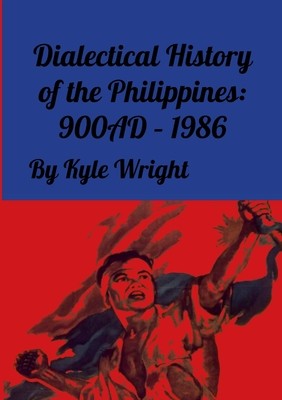
- We will send in 10–14 business days.
- Author: Kyle Wright
- Publisher: Lulu.com
- Year: 2021
- Pages: 297
- ISBN-10: 1794794530
- ISBN-13: 9781794794535
- Format: 14.8 x 21 x 1.6 cm, minkšti viršeliai
- Language: English
- SAVE -10% with code: EXTRA
Reviews
Description
NOTE: Get the *UPDATED* version at Lulu.com. Filipinos today weren't as they were 900AD, the Philippine archipelago wasn't a unified nation-state, but divided by numerous cultures and ethnic tribes aka Barangays. Philippines today has over 134 ethnic groups residing in the country, each with their own dialect distinct from the main official Tagalog language. Philippines and Filipinos were named by the Spanish after their King Philip II, the colonisation by the Spanish was harsh, the Inquisitors forced Christianity upon the local barangays and all communities of Filipinos, by the end the archipelago was united under Spanish rule for centuries, till they were forced to hand over the archipelago to the Americans after the Spanish-American War, Filipino Revolutionaries that took part in the War seeking independence and sovereignty were betrayed by the Americans and continued their revolt against their new Colonial Masters, by which the US responded with Massacres of innocent Filipinos which halted the Revolution, over many decades Reforms and legislation was implemented in giving Filipinos some form of Democracy by imitating US Republicanism. After which many Filipinos who thought they won their independence through Reform were disillusioned by US influence in their economy and political strata, many Filipino Presidents and congressmen attempted to breakaway from US neocolonialism, but in doing so were left ostracism. What else happens to the Filipinos? Find out in this in-depth analysis of Philippine History.
EXTRA 10 % discount with code: EXTRA
The promotion ends in 21d.06:53:56
The discount code is valid when purchasing from 10 €. Discounts do not stack.
- Author: Kyle Wright
- Publisher: Lulu.com
- Year: 2021
- Pages: 297
- ISBN-10: 1794794530
- ISBN-13: 9781794794535
- Format: 14.8 x 21 x 1.6 cm, minkšti viršeliai
- Language: English English
NOTE: Get the *UPDATED* version at Lulu.com. Filipinos today weren't as they were 900AD, the Philippine archipelago wasn't a unified nation-state, but divided by numerous cultures and ethnic tribes aka Barangays. Philippines today has over 134 ethnic groups residing in the country, each with their own dialect distinct from the main official Tagalog language. Philippines and Filipinos were named by the Spanish after their King Philip II, the colonisation by the Spanish was harsh, the Inquisitors forced Christianity upon the local barangays and all communities of Filipinos, by the end the archipelago was united under Spanish rule for centuries, till they were forced to hand over the archipelago to the Americans after the Spanish-American War, Filipino Revolutionaries that took part in the War seeking independence and sovereignty were betrayed by the Americans and continued their revolt against their new Colonial Masters, by which the US responded with Massacres of innocent Filipinos which halted the Revolution, over many decades Reforms and legislation was implemented in giving Filipinos some form of Democracy by imitating US Republicanism. After which many Filipinos who thought they won their independence through Reform were disillusioned by US influence in their economy and political strata, many Filipino Presidents and congressmen attempted to breakaway from US neocolonialism, but in doing so were left ostracism. What else happens to the Filipinos? Find out in this in-depth analysis of Philippine History.


Reviews